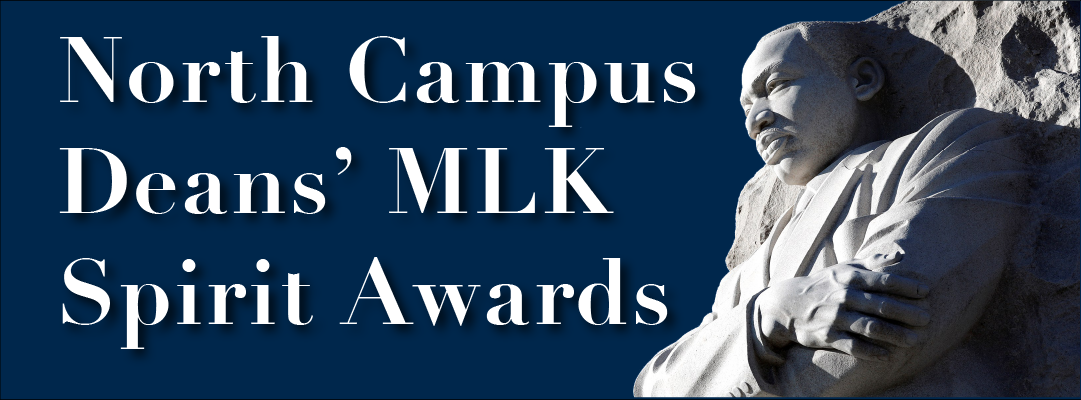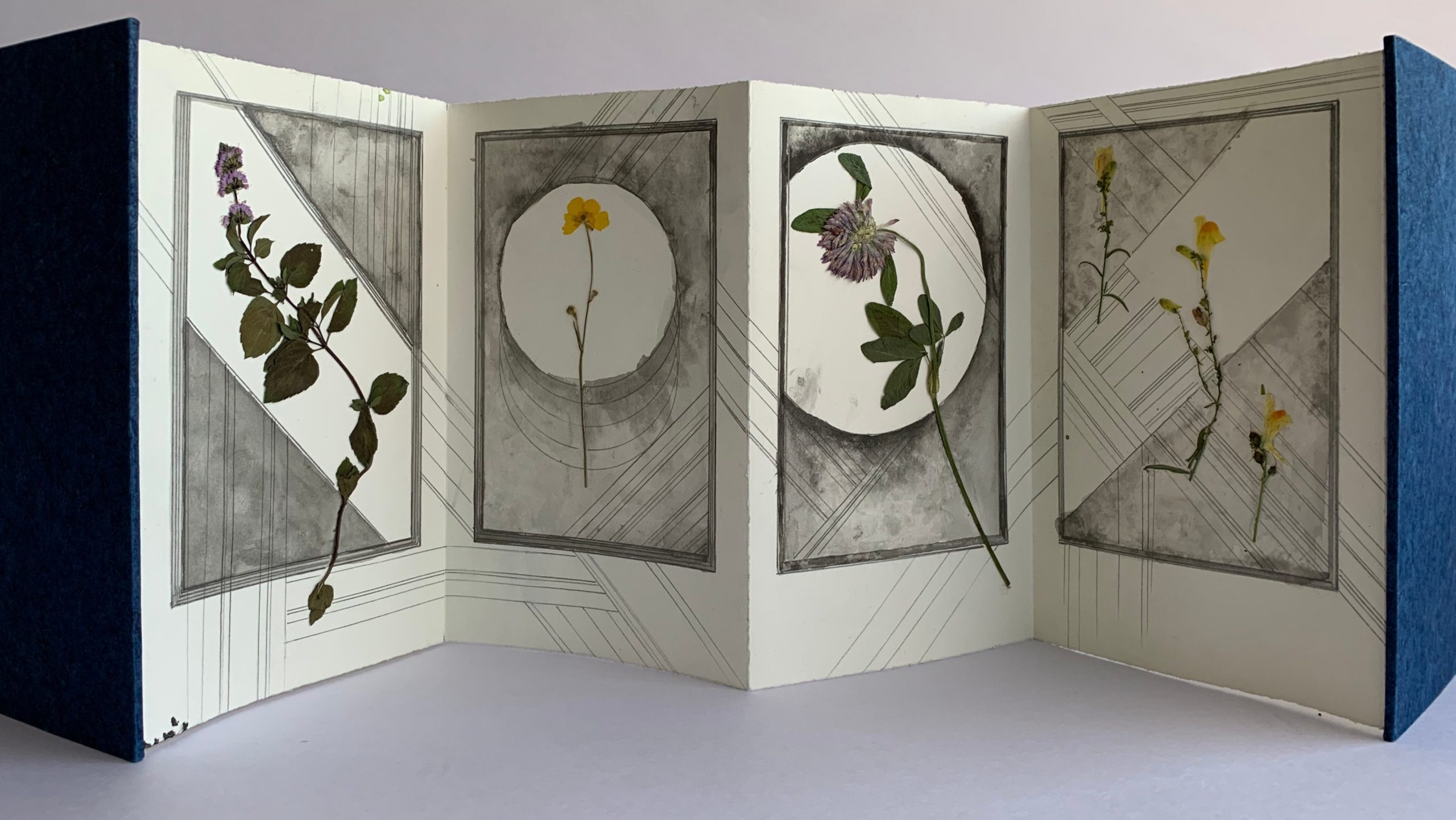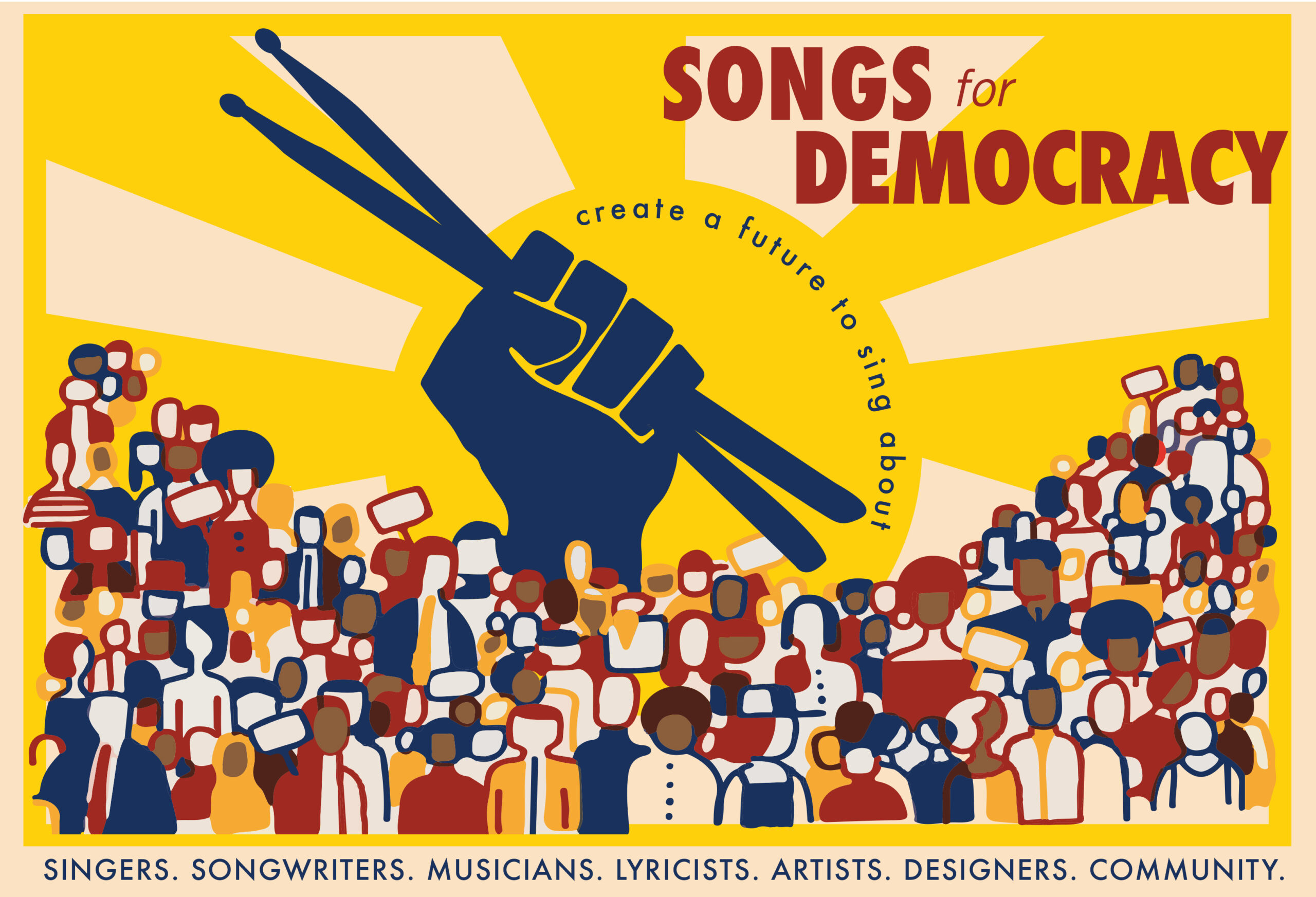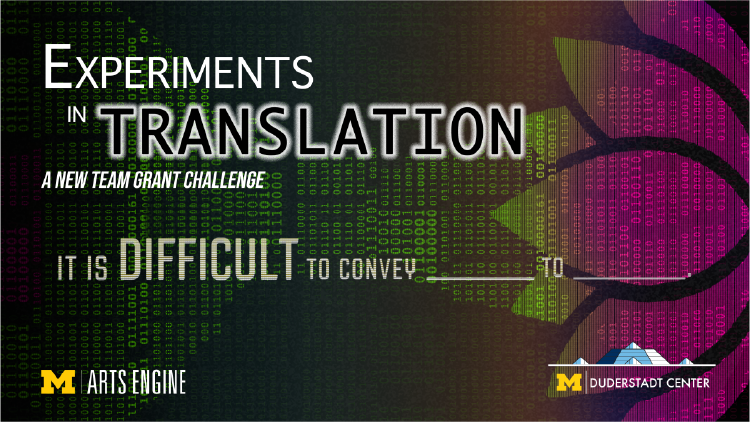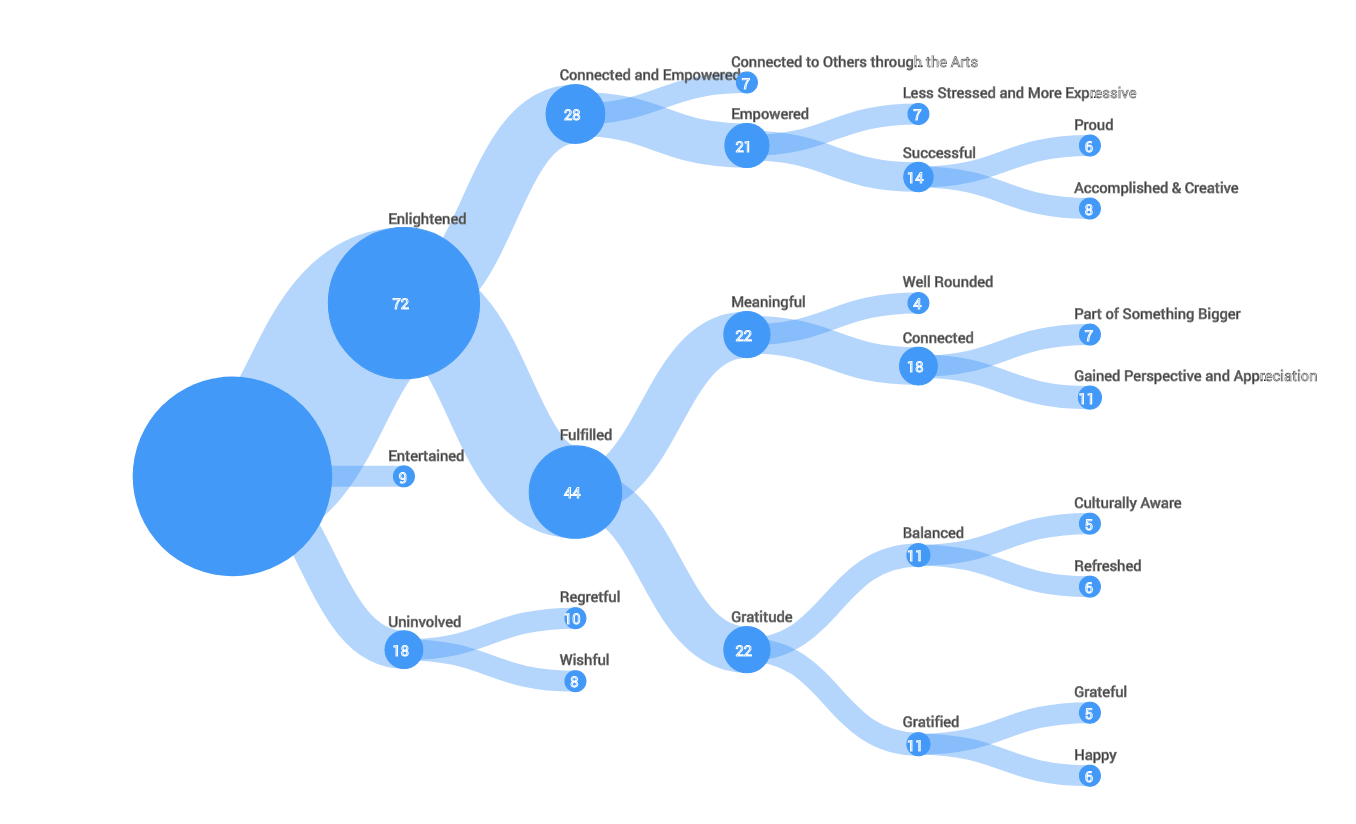special programs
MLK spirit awards
This annual north campus event is hosted by the Taubman College of Architecture & Urban Planning, the College of Engineering, Stamps School of Art & Design, School of Music, Theatre & Dance in conjunction with ArtsEngine and the Duderstadt Center as part of the University of Michigan’s MLK Symposium to honor and commemorate the life and legacy of the Reverend Dr. Martin Luther King, Jr.
The MLK Spirit Awards are given to students, student organizations, staff, and faculty members at the University of Michigan North Campus who exemplify the leadership and vision of Dr. King through their commitment to social justice, diversity, equity, and inclusion. The 2022 awards will be presented in-person and livestreamed on January 17 in the Chesebrough Auditorium.
science as art contest
Science as Art is co-sponsored by Arts at Michigan and ArtsEngine and includes an exhibition featuring student artwork inspired by and demonstrating scientific ideas and principles. Awards are given for Best in Show and a range of other categories across a wide range of media. The event typically includes an exhibit of submissions along with a faculty panel and award ceremony. The 2022 exhibition will be viewable online and in-person February 14-18; awards will be announced at the ceremony on February 18.
View past winners online in the award gallery.
past programs
songs for democracy
The open exchange of ideas. Fair and free elections. Democratic institutions and the passion to support them. These are fundamental aspects of democracy in the United States and across the globe. Yet democracy can never be taken for granted. Democracy requires consistent commitment and diligent work to thrive.
Song serves to unite ideas and passion, effort and commitment. In American history, song has sparked revolution, roused the commitment to end slavery, rallied volunteers to defend the nation, and sustained marchers demanding civil rights. The alloy of words and melody have at times united the nation and at others moved us to respond to crisis and embolden change.
Stay tuned for more details!
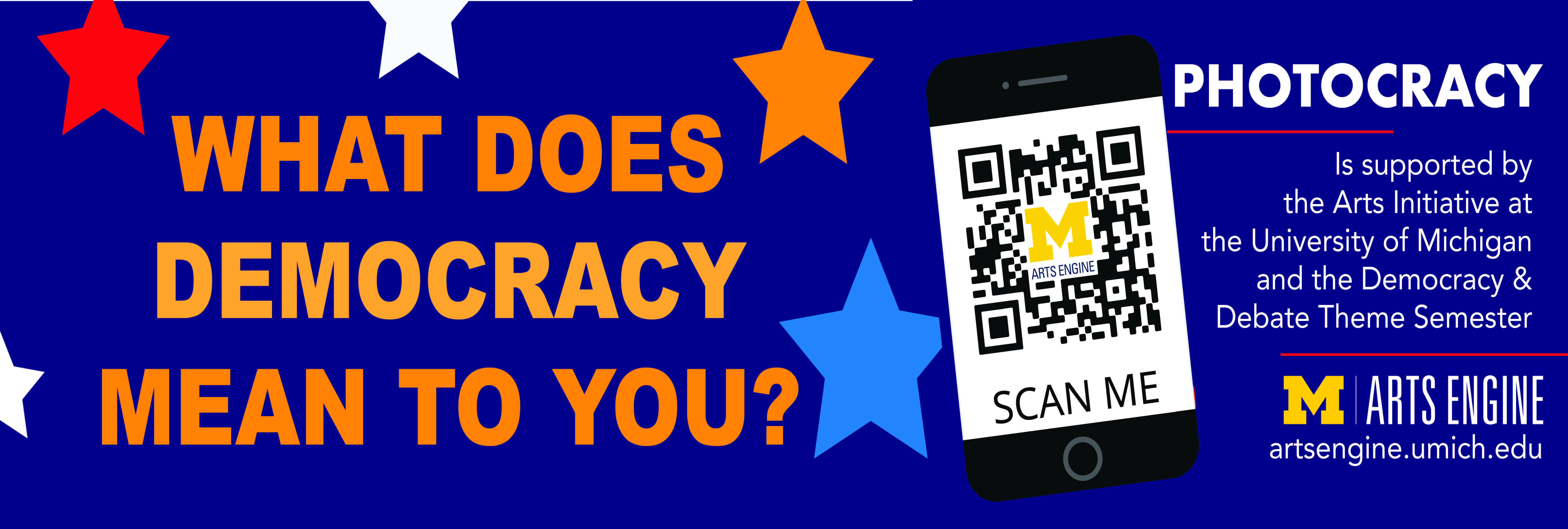
photocracy
Photocracy: Defining Democracy Through Stories and Art will capture this moment in time by bringing the campus community together across differences through an artistic lens. Photocracy invites members of the U-M campus community to share what democracy means to them by submitting an image along with a short written or audio- or video-recorded explanation of the personal meaning of that image. Submissions are showcased in an ever-growing online collage of images and videos, displaying a diverse and wide-ranging collection of unique perspectives of our campus community. Submissions will be used as raw material for a commissioned exhibit, installation, performance, composition, etc. from a U-M faculty and grad student artist or designer with which the campus will interact.
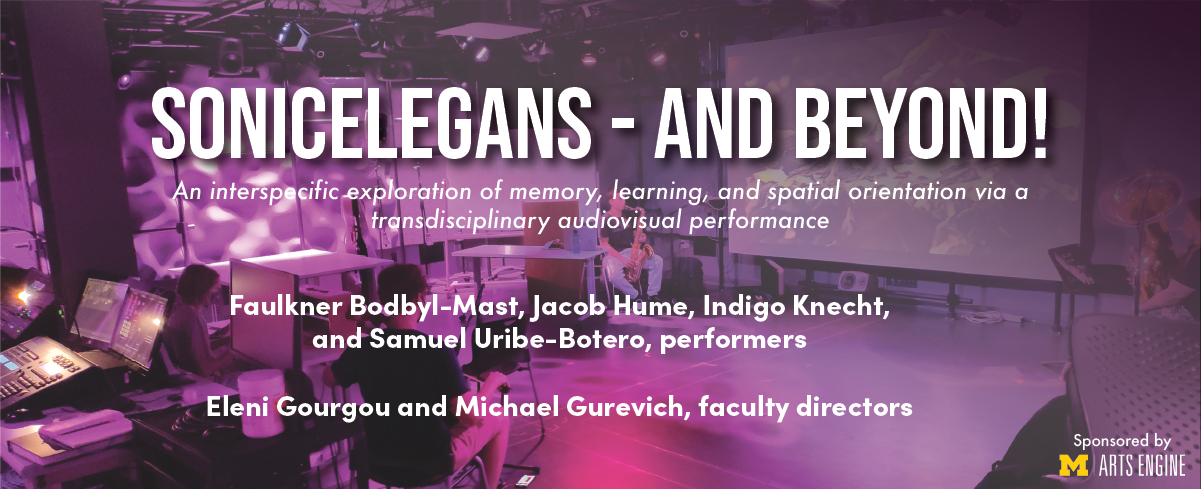
soniCelegans
Through a collaboration among musicians, neurobiologists, sound engineers, composers, scientists, humans, and nematodes, we explore questions inspired by neurobiology experiments with the invertebrate model organism Caenorhabditis elegans (C. elegans). How does memory sound? What constitutes the musical background of a memory? How is a maze represented musically? What is the relationship between stochasticity in spatial navigation and improvisation in musical navigation? How can a performer converse with a tiny invertebrate animal lost in space? How can we learn to create music guided by an experimental animal? How can an invertebrate creature learn to navigate guided by music? How do the founding definitions of our certainties shape up when we shift our frame of thought into a new paradigm? More info coming soon!
sonic scenographies
Sonic Scenographies is a research program that catalyzes experimental collaboration at the intersection of performance, music, theatre, dance, architecture, and digital space. It is an invitation for students across disciplines, with support from faculty, to speculate on ways performative digital space can offer novel social and cultural experiences. Sonic Scenographies relies on interdisciplinary collaboration and emergent technologies to test new methods in digital design, online performance, documentation, and transmission.
experiments in translation
The Duderstadt Center and ArtsEngine invite U-M students to explore new ways to communicate difficult concepts. In March 2020, Experiments in Translation will award up to three $10,000 grants to collaborative projects that bring Duderstadt Center technologies to bear in response to a communications challenge. Projects are expected to be completed within one year, during which time awardees will participate in strategic workshops, discussions and other events to support their progress.
The winning project, Microbial Masterpieces, continues to develop and is on display on the U-M campus.
MDP Hammond organ project
Students on the ArtsEngine project will create a media-integrative 21st century expressive instrument by re-imagining and re-designing a vintage analog musical instrument – a Hammond M3 organ.

arts engagement project
The Arts Engagement Project is a study of about 4,000 undergraduate students at the University of Michigan that asked questions about the impacts, precursors, barriers, frequency, and perceptions of co-curricular arts engagement in college. The results — particularly when coupled with an analysis of their relationship the demographic profiles of the respondents — provided important insights for the design of arts-based experiences in higher education, as well as the impacts of the arts on student learning and engagement. The results of this work have been used to add an array of categories of impacts to a2ru’s Impacts Map.
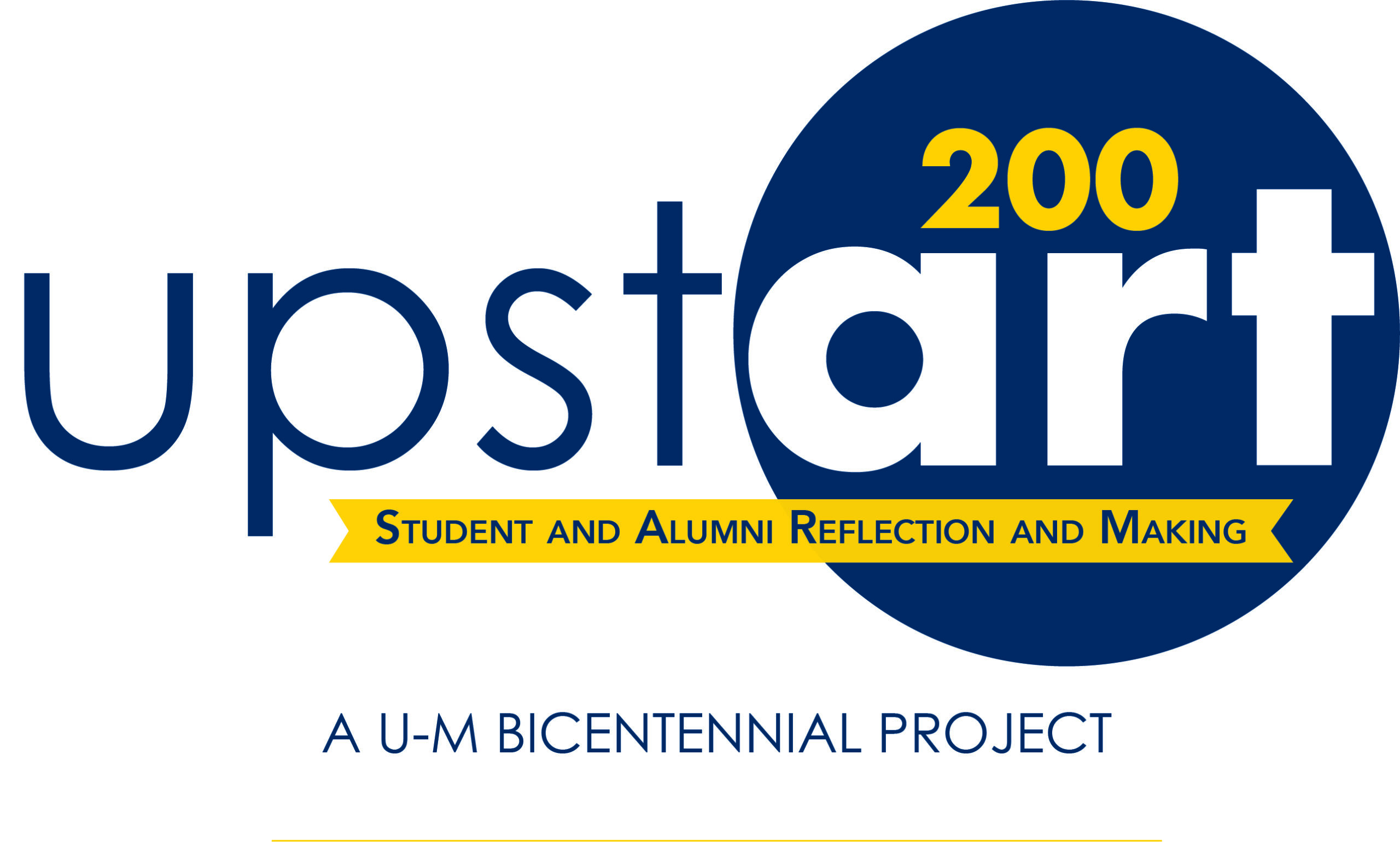
UpstART 200
Celebrating and exhibiting student and alumni creative work, UpstART 200 is a U-M Bicentennial project encouraging active engagement with and connection to the University through inspiration from art, design and architecture, examples of which are curated in an online archive. Creative work of all kinds from across disciplines were accepted into the online exhibition space through Winter 2018, after which the submitted works will be permanently curated as part of the history of the U–M Bicentennial. Partner events, course assignments, online activities and student maker grants all contributed to the goal of 200 student and alumni generated response pieces by the end of the project (April 2018).

